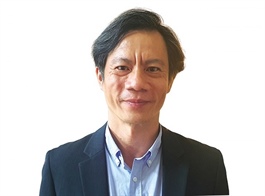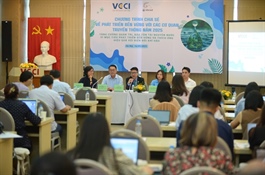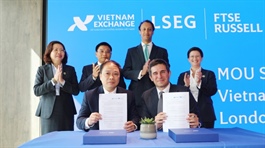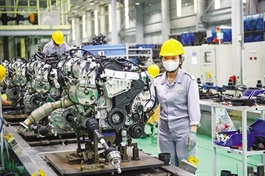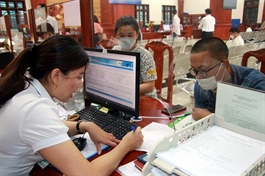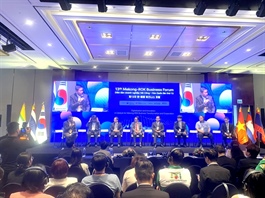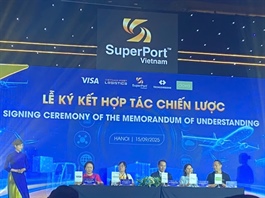Startup ecosystem in healthy stead
Startup ecosystem in healthy stead
Thanks to government support and a rapidly growing innovation ecosystem, a substantial number of Vietnamese startups may be able to scale regionally and go global.
On September 10, a delegation of 30 South Korean startups in AI, edtech, fintech, gaming, and healthcare arrived in Hanoi. Their visit was part of the Vietnam Immersion Week Roadshow 2025, co-organised by South Korea’s Ministry of Small- and Medium-sized Enterprises and Startups, and Vietnam’s National Innovation Centre (NIC).
At the exhibition, nearly 200 direct business-matching sessions took place between South Korean startups and Vietnamese experts and potential partners. Several companies identified promising local collaborators and are aiming to launch their products in the market within the next 3-6 months.
Young-rock Kim, director of Next Challenge, sees Vietnam as having a vibrant and fast-growing startup ecosystem. “Combining South Korea’s advanced technologies and entrepreneurial spirit with Vietnam’s innovation-driven energy will support each other, and lay the foundation for long-term, strategic partnerships among startups of the two countries,” he said.
From the domestic perspective, NIC’s deputy director Do Tien Thinh stated that Vietnam is entering a golden phase for local startups as well as those from overseas.
“Numerous favourable policies are in place to support innovation and scientific advancement, meaning both local and international startups benefit when operating in Vietnam,” Thinh said.
Some current support and incentive policies for innovation and sci-tech development in Vietnam include corporate income tax exemptions; land lease exemptions or reductions in high-tech zones and economic areas; preferential policies for innovation centres and startup support organisations; personal income tax incentives; and various incentives for startups and small businesses.
Nguyen Huong Quynh, CEO of BambuUP, which frequently publishes reports on the open innovation landscape in Vietnam, noted that South Korean startups in particular should seize this moment to enter the Vietnamese market.
“However, only those that make serious investments, understand the market, and effectively leverage the local ecosystem will succeed,” she said.
This influx of international engagement also offers valuable opportunities for Vietnamese startups to collaborate globally. Laura Nguyen, partner at GenAI Fund, noted Vietnam’s strong potential for co-developing and scaling high-tech solutions.
“Over the next few years, I expect Vietnam’s enterprise AI market to grow at a double-digit compound annual growth rate,” she said.
Nguyen highlighted some key advantages in attracting investment into deep tech and AI, such as cost-efficiency, an eager-to-learn workforce, and competitive cost-per-value ratios. Many companies headquartered in Singapore are also hiring engineering teams based in Vietnam.
“To go deeper into the global value chain, tech startups in Vietnam must be flexible and adaptive, staying aligned with rapid tech evolution; address holistic problems; measure business impact; and leverage go-to-market via partnerships to shorten sales cycles,” she added.
Nguyen also raised some recommendations for the government to further support startup, including sandbox policies and pilot frameworks for key sectors like finance, healthcare, education, and logistics; shared infrastructure like green computing and Vietnamese-language data repositories; and alignment with international AI ethics and safety standards to ease startup expansion.
“Innovation-driven public procurement will help create demand pull for emerging technologies,” she said. “When the government both paves the way and buys to test, the market can scale much faster.”
According to the Ministry of Science and Technology, Vietnam currently has around 4,000 startups, with many valued at over $100 million. The startup ecosystem is supported by over 200 venture funds, more than 80 incubators, 40 accelerators, and over 20 business support centres.
The Global Startup Ecosystem Index 2025 shows that Vietnam has climbed one rank to 55th globally, maintaining fifth position in Southeast Asia and marking the third consecutive year of progress.
- 10:10 17/09/2025




